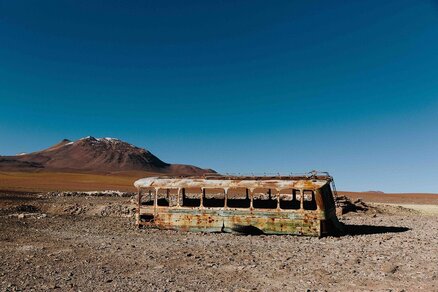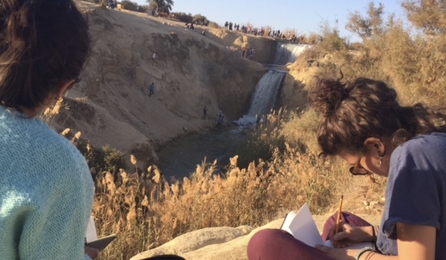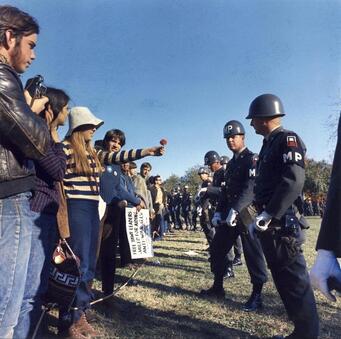CILAS is inviting applications to its winter online course cycle until December 22nd 2020.

Introduction to the Anthropology of the Magical, Mystical, and Unseen
By Sohaila El Fakahany starting December 21st from 6 pm to 8:30 pm for seven consecutive Mondays
Egypt is a place where traditional spiritual healing methods that include ‘superstitious’ beliefs and rituals are still popular, in recent years new modalities like energy healing have also become popular and available. However, it’s very common for spiritual and other healing practitioners to be cast as ignorant and the practices as fraudulent. Despite this, today it is common that people are religiously observant, think of themselves as modern and cosmopolitan, and still practice yoga, have tarot readings and seek the help of a crystal healer. In that sense, there’s an extent of hybridization between what is believed to be the mystical and the modern when it comes to spiritual healing in contemporary Egypt. It can be said that this seeming contradiction has come about as a result of the enlightenment project, which had sought to put humans as masters of the world. It was perceived as an act of rationalist liberation that would help them reach progress and improve their conditions. The rise of the nation-state led to the colonization of not only policies and laws, but also the bodies and ideas of the colonized communities. Consequently, the enlightenment project resulted in the disenchantment of knowledge and the world became, and still is, a place where myths are viewed as the opposite of modernity.
Sohaila EL FAKAHANY is a witch at heart and an academic by training. Her MA thesis discusses holistic spiritual healing practices in contemporary Cairo. She looks at these practices and debates through a medical, religious, and magical anthropology lens and in relation to the growing interest in alternative and complementary healing in Egypt. She conducted ethnographic fieldwork with healers, people seeking healing, online healing practices and fortunetelling applications and services. Her research has led her on a path towards becoming a healing practitioner working with a tarot cards, crystals and Reiki.
For more on the proposed course flow see here.
By Sohaila El Fakahany starting December 21st from 6 pm to 8:30 pm for seven consecutive Mondays
Egypt is a place where traditional spiritual healing methods that include ‘superstitious’ beliefs and rituals are still popular, in recent years new modalities like energy healing have also become popular and available. However, it’s very common for spiritual and other healing practitioners to be cast as ignorant and the practices as fraudulent. Despite this, today it is common that people are religiously observant, think of themselves as modern and cosmopolitan, and still practice yoga, have tarot readings and seek the help of a crystal healer. In that sense, there’s an extent of hybridization between what is believed to be the mystical and the modern when it comes to spiritual healing in contemporary Egypt. It can be said that this seeming contradiction has come about as a result of the enlightenment project, which had sought to put humans as masters of the world. It was perceived as an act of rationalist liberation that would help them reach progress and improve their conditions. The rise of the nation-state led to the colonization of not only policies and laws, but also the bodies and ideas of the colonized communities. Consequently, the enlightenment project resulted in the disenchantment of knowledge and the world became, and still is, a place where myths are viewed as the opposite of modernity.
Sohaila EL FAKAHANY is a witch at heart and an academic by training. Her MA thesis discusses holistic spiritual healing practices in contemporary Cairo. She looks at these practices and debates through a medical, religious, and magical anthropology lens and in relation to the growing interest in alternative and complementary healing in Egypt. She conducted ethnographic fieldwork with healers, people seeking healing, online healing practices and fortunetelling applications and services. Her research has led her on a path towards becoming a healing practitioner working with a tarot cards, crystals and Reiki.
For more on the proposed course flow see here.

On Time and Temporality
By Shan Yang starting December 29th from 5 pm to 7 pm for ten consecutive Tuesdays
The global pandemic has occasioned an impulse to think how we experience time as well as the acute structural violence deployed by the state and the capital. If to “change the world” is first of all to “change time” (Giorgio Agamben), this seminar invites participants to investigate the notion of time, the temporality and how to articulate the past, the present and the future. This seminar provides a critique of a spatialized, measurable, quantifiable, homogeneous, empty, and teleological time embedded in capitalist modernity and an investigation into its purest expression in the specular and complementary temporalities of industrial wage labor, of financial speculation and of bourgeois historicism. It attempts to conjugate the critical temporal with the corporeal, the sensibilities of being stuck, the indebted men and the precarious life. In so doing, it explores other imaginaries of time, the possible and the potential.
Shan YANG is a Post-MA Fellow for the 2019-2020 academic year at HUSSLab after obtaining an MA at the American University in Cairo. Her MA Comprehensive Examination covered three domains: political economy, time and temporality and the urban. She is currently working on a research project-Being and Living in Spaces of Global Capitalism: Time, Gender and Lifeworlds of Rural Migrant Laborers. She obtained her Bachelor's degree (2012) and first MA (2015) at Fudan University in Shanghai.
For the proposed reading list see here.
By Shan Yang starting December 29th from 5 pm to 7 pm for ten consecutive Tuesdays
The global pandemic has occasioned an impulse to think how we experience time as well as the acute structural violence deployed by the state and the capital. If to “change the world” is first of all to “change time” (Giorgio Agamben), this seminar invites participants to investigate the notion of time, the temporality and how to articulate the past, the present and the future. This seminar provides a critique of a spatialized, measurable, quantifiable, homogeneous, empty, and teleological time embedded in capitalist modernity and an investigation into its purest expression in the specular and complementary temporalities of industrial wage labor, of financial speculation and of bourgeois historicism. It attempts to conjugate the critical temporal with the corporeal, the sensibilities of being stuck, the indebted men and the precarious life. In so doing, it explores other imaginaries of time, the possible and the potential.
Shan YANG is a Post-MA Fellow for the 2019-2020 academic year at HUSSLab after obtaining an MA at the American University in Cairo. Her MA Comprehensive Examination covered three domains: political economy, time and temporality and the urban. She is currently working on a research project-Being and Living in Spaces of Global Capitalism: Time, Gender and Lifeworlds of Rural Migrant Laborers. She obtained her Bachelor's degree (2012) and first MA (2015) at Fudan University in Shanghai.
For the proposed reading list see here.

Discovering Biomimicry
By Sara El-Sayed starting December 24th from 4 pm to 6 pm for seven Thursdays
Nature is our best mentor and model for a more sustainable future. Biomimicry is the study of nature-inspired design, but it’s not just about looking at the shape of a flower, it is a methodology to attain sustainable designs in all sectors, engineering, business, medicine and more. This course is a seven-week long course designed to inspire you to begin to think like a biomimic, regardless of your field or career. Each class will be two hours, with a mix of lecture, discussion, nature explorations, activities research and project work. The objectives of the course are to identify the core philosophy and key elements of biomimicry; to learn from nature-inspired design; and to begin to see life for the genius design partner it is.
By Sara El-Sayed starting December 24th from 4 pm to 6 pm for seven Thursdays
Nature is our best mentor and model for a more sustainable future. Biomimicry is the study of nature-inspired design, but it’s not just about looking at the shape of a flower, it is a methodology to attain sustainable designs in all sectors, engineering, business, medicine and more. This course is a seven-week long course designed to inspire you to begin to think like a biomimic, regardless of your field or career. Each class will be two hours, with a mix of lecture, discussion, nature explorations, activities research and project work. The objectives of the course are to identify the core philosophy and key elements of biomimicry; to learn from nature-inspired design; and to begin to see life for the genius design partner it is.
Sara EL-SAYED is pursuing a Ph.D. in food system sustainability focussing on regenerative food practices in arid regions. She is a researcher at The Biomimicry Centre specialising in Life's Principles. Sara is co-founder of Nawaya - a social enterprise working as a catalyst to transition small scale farmer communities in Egypt into more sustainable ones through education and research. She is also co-founder of Dayma offering outdoor Environmental Education, teaching young adults about Biomimicry and local Egyptian communities Sara is on the board of Slow Food, an international movement that started in Italy aiming to safeguard local food cultures and traditions and does so by promoting Good, Clean, and Fair food for all.
For the proposed course outline see here.
For the proposed course outline see here.

For Lack Of A Better Word? Interrogating the Literal
By Biu Rainey starting January 6th, 2021 from 5 pm to 7 pm for eight consecutive weeks
It’s often argued (in the university, politics, public life, and elsewhere) that clarity and precision in language are necessary for effective communication. Recent trends in linguistics, however, suggest that metaphor is a natural outgrowth of the way human cognition is organized - indeed, that our experience of the world is often rooted in metaphor. But these arguments come with certain assumptions: why is the literal taken as default, and the non-literal as somehow aberrant? Is this truly a natural consequence of human cognition and semiotics?
Biu RAINEY is a PhD candidate in Linguistics at the University of Oslo, where he is investigating the ability of infants to process ‘non-literal’ language. More generally, his work looks at the ways in which semantic meaning, grammar and context coexist and influence each other. Elsewhere, Biu currently works as a researcher with Grambank - a project aiming to document global grammatical structures - at SOAS in London, and has run multiple formal and informal workshops on metaphor with various schools and groups. More importantly, he loves Pokémon, baking, and really needs to learn to tie-die.
For the proposed course flow see here.
By Biu Rainey starting January 6th, 2021 from 5 pm to 7 pm for eight consecutive weeks
It’s often argued (in the university, politics, public life, and elsewhere) that clarity and precision in language are necessary for effective communication. Recent trends in linguistics, however, suggest that metaphor is a natural outgrowth of the way human cognition is organized - indeed, that our experience of the world is often rooted in metaphor. But these arguments come with certain assumptions: why is the literal taken as default, and the non-literal as somehow aberrant? Is this truly a natural consequence of human cognition and semiotics?
Biu RAINEY is a PhD candidate in Linguistics at the University of Oslo, where he is investigating the ability of infants to process ‘non-literal’ language. More generally, his work looks at the ways in which semantic meaning, grammar and context coexist and influence each other. Elsewhere, Biu currently works as a researcher with Grambank - a project aiming to document global grammatical structures - at SOAS in London, and has run multiple formal and informal workshops on metaphor with various schools and groups. More importantly, he loves Pokémon, baking, and really needs to learn to tie-die.
For the proposed course flow see here.

